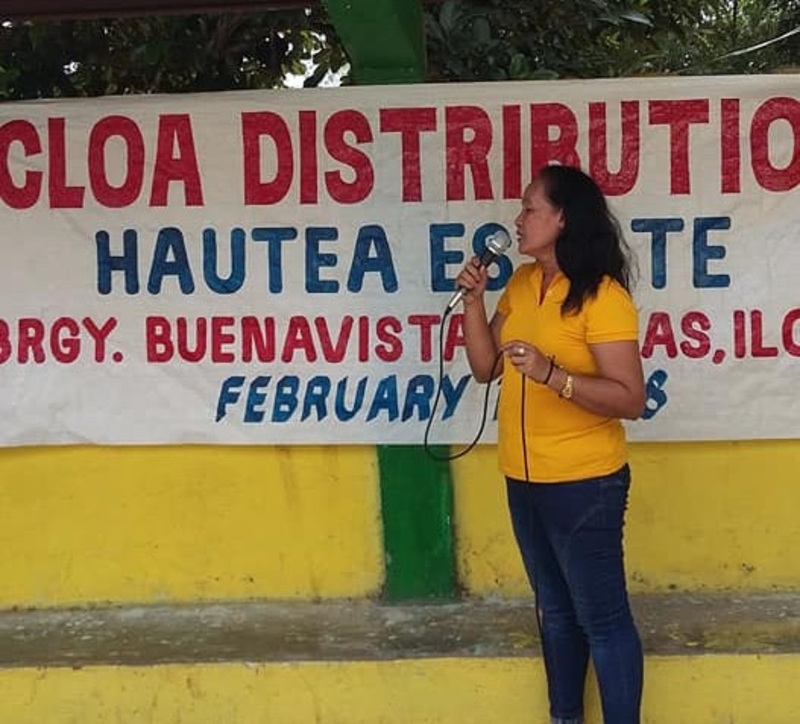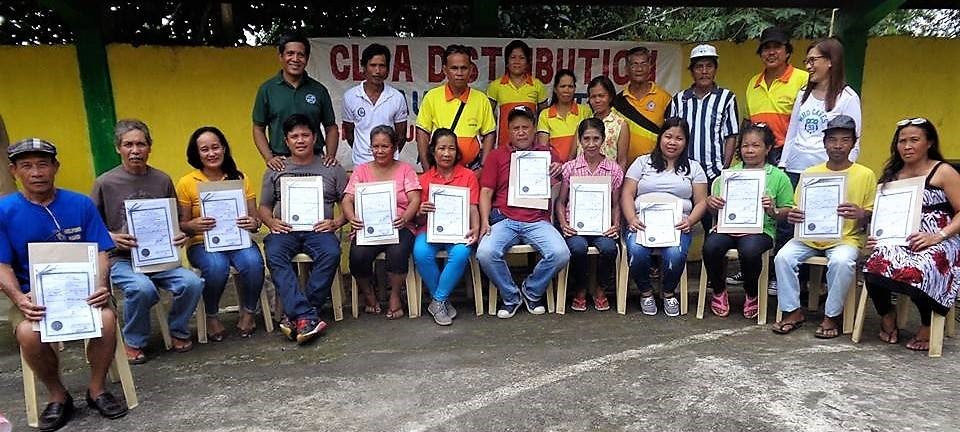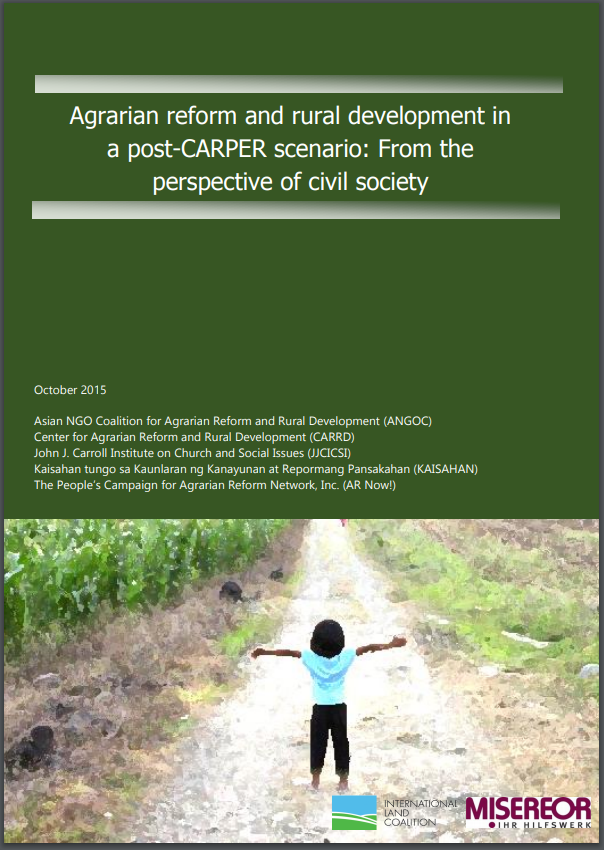
At this day and age, it still can be a wonder for some people how women like me are able to tend to our farms on our own. Farming is not suitable for women, they say. You need masculine strength for the manual labour involved, I've been told. Women should be content with providing domestic and emotional support to their husbands, they tell me. But I did not listen. If men can do it, why can't we?
I've been exposed to the lands quite young, being a daughter of a farmer tenant. I grew up in the hacienda where my father was one of the first occupants, and where he had worked all his life. He died dreaming of the day that he will be able to till his own land.
I did not want to share the same plight. I knew that land ownership is important in helping me reach my full potential as a farmer, especially as a woman who struggles to establish her own identity at a grassroots level due to gender stereotypes. After all, women working in agriculture is not mainstream, and our access to agricultural knowledge has always been limited.
I had the opportunity to step up when my husband decided to seek employment overseas in search for a better future, leaving me in-charge of our land and our six children. I admit performing my new role as an independent farmer and as the sole parent around was a struggle. I have been advised to forget farming and just focus on my children, but the call of the land was strong. I was persistent. I knew that I could juggle farm work and still perform my duties as the temporary head of the family. This was my time to prove that women should not be confined to being in the background of their farmer husbands, but also as active contributors to the economy as farmers themselves. We have always been labeled as farmers' wives, but why should the word "farmer" be exclusive to a male person?

In 2012, CARRD went to my barangay and recruited paralegal volunteers. In CARRD's context, paralegals provide support to farmers in their agrarian reform cases. CARRD trained me and several other women on Comprehensive Agrarian Reform Program (CARP) and its relevant laws. I also learned to do case build-up, community profiling, affidavit making, partnership building, and talking to people from various Government agencies – things that I did not think I can do. In the process, I also learned to mediate conflicts among farmers, because essentially, they have to work altogether if they want their cases to move. Gaining access to all these information strengthened my capabilities. I became an instrument to assist my fellow farmers in fighting for their land rights.
And while I enjoy the work as well as helping other farmers, being a paralegal has helped me help my own family. Early this year, I was privileged to have been awarded 2.5 hectares of land through CARP. It took 6 years before my land was awarded to me, but I did not surrender. Because I am no longer a tenant, I know I can improve my farm and earn more. Who knows, in the near future, my husband won't have to leave the country again for better opportunities?
My responsibilities at 48 years old as a farmer, mother, wife, farmer representative at the Presidential Agrarian Reform Coordinating Committee (PARCCOM), active member of the Barangay Agrarian Reform Council (BARC), paralegal volunteer, and experiences as Barangay Secretary for 17 years and Treasurer for 3 years have kept me from retiring. I feel proud to be successfully managing my time among my family, jobs, and my responsibilities to the Lord.
My dream remains that women be recognized for their hard work and successes in their own lands, and not just for being a farmer's daughter or a farmer's wife.
Training and recruitment of farmer-paralegals has always been a key intervention of CARRD in facilitating the distribution of agrarian reform lands in targeted communities. Despite the fact that agrarian reform is considered a household – rather than an individual concern, little attention was paid to providing women with equal opportunity to participate in public avenues where gender-specific land rights concerns can be raised. This was because land ownership was primarily under the name of the household head, i.e., men. In the next five years, CARRD hopes to develop a platform where women's concerns on land rights are raised, and provide more meaningful participation for women in rural communities.
The article was written for Edna Aguilar by CARRD's Research Officer Leigh de Guzman.



